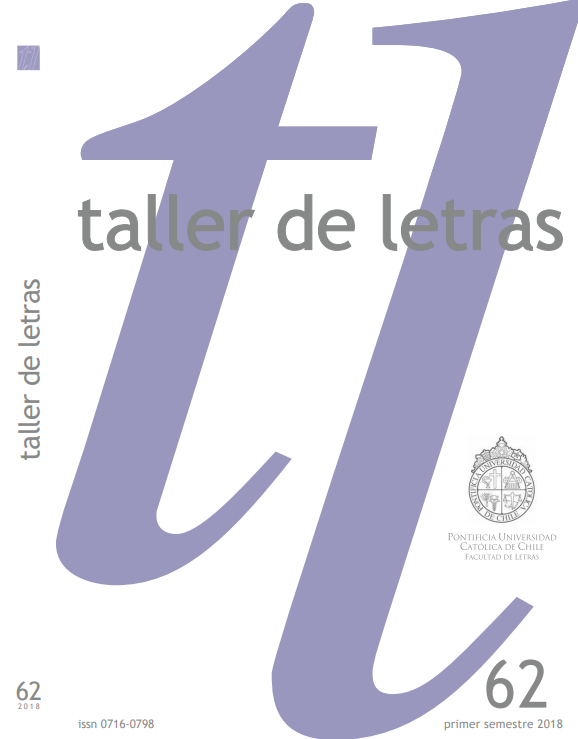Disaffection, mourning and indelible character in the testimony El furgón de los locos by Carlos Liscano
Main Article Content
Abstract
In this article I read the testimony El furgón de los locos (2003) by Uruguayan writer Carlos Liscano, using the procedures of elaboration of mourning and representation of torture, emphasizing their linguistic dimension. I argue that this autobiographical testimony, as a post-traumatic rhetoric of late memory, puts into question the relation between subject, language, and narrative experience. Finally, I suggest that the break with the identity voice projects a second production of writings that, in a disruptive fashion, impacts memory.
Downloads
Download data is not yet available.
Article Details
Section
Artículos

This work is licensed under a Creative Commons Attribution-NonCommercial-ShareAlike 4.0 International License.

